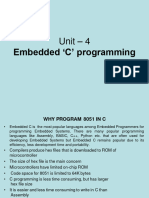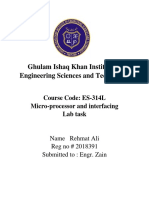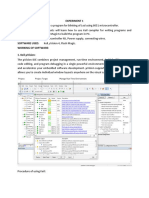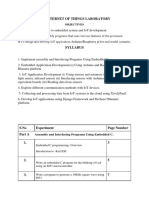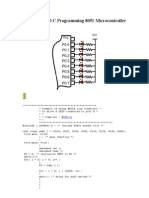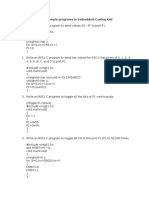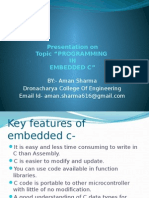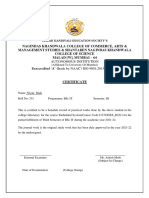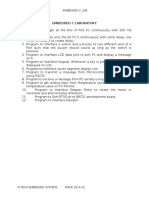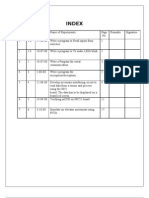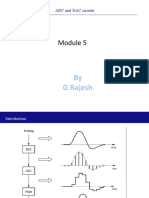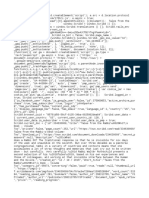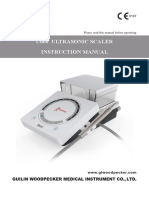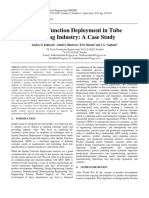0% found this document useful (0 votes)
54 views2 pages8051 Lab Manual EmbeddedC
The document is a lab manual for the 8051 microcontroller using Embedded C, focusing on basic and advanced tasks. It includes various tasks such as LED blinking, number addition, toggling bits, and implementing serial communication. Each task is accompanied by sample code demonstrating the functionality on the AT89C51/52 microcontroller using the EdSim51 simulator.
Uploaded by
G RAJESHCopyright
© © All Rights Reserved
We take content rights seriously. If you suspect this is your content, claim it here.
Available Formats
Download as PDF, TXT or read online on Scribd
0% found this document useful (0 votes)
54 views2 pages8051 Lab Manual EmbeddedC
The document is a lab manual for the 8051 microcontroller using Embedded C, focusing on basic and advanced tasks. It includes various tasks such as LED blinking, number addition, toggling bits, and implementing serial communication. Each task is accompanied by sample code demonstrating the functionality on the AT89C51/52 microcontroller using the EdSim51 simulator.
Uploaded by
G RAJESHCopyright
© © All Rights Reserved
We take content rights seriously. If you suspect this is your content, claim it here.
Available Formats
Download as PDF, TXT or read online on Scribd
/ 2



